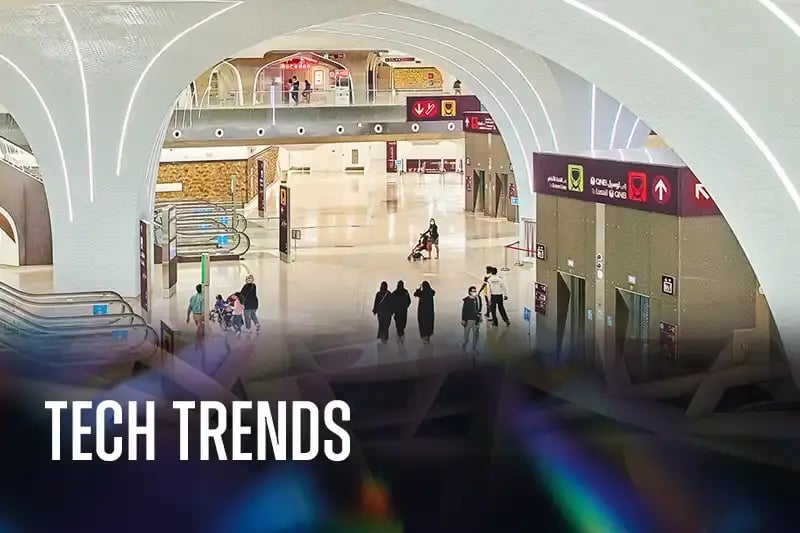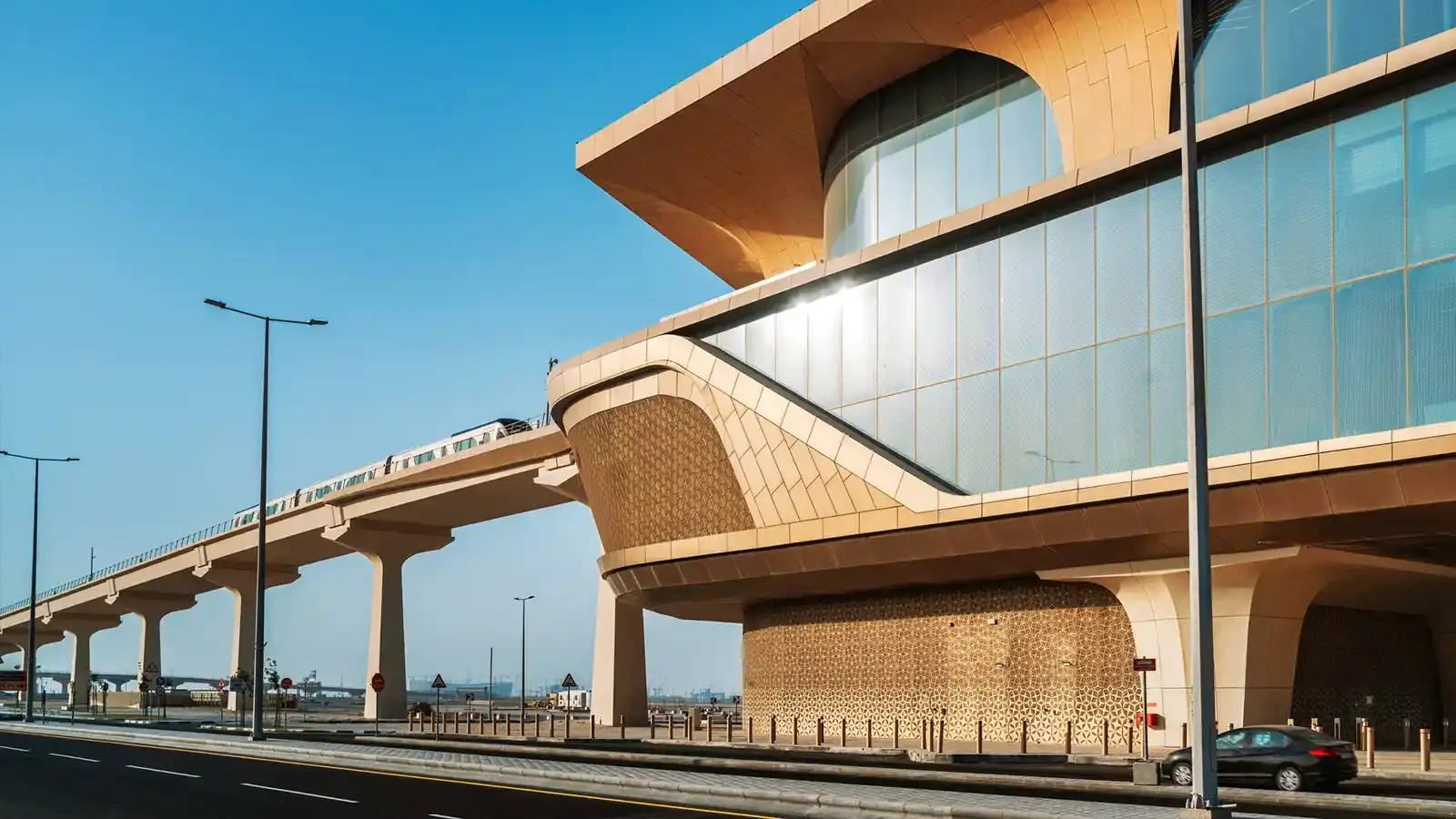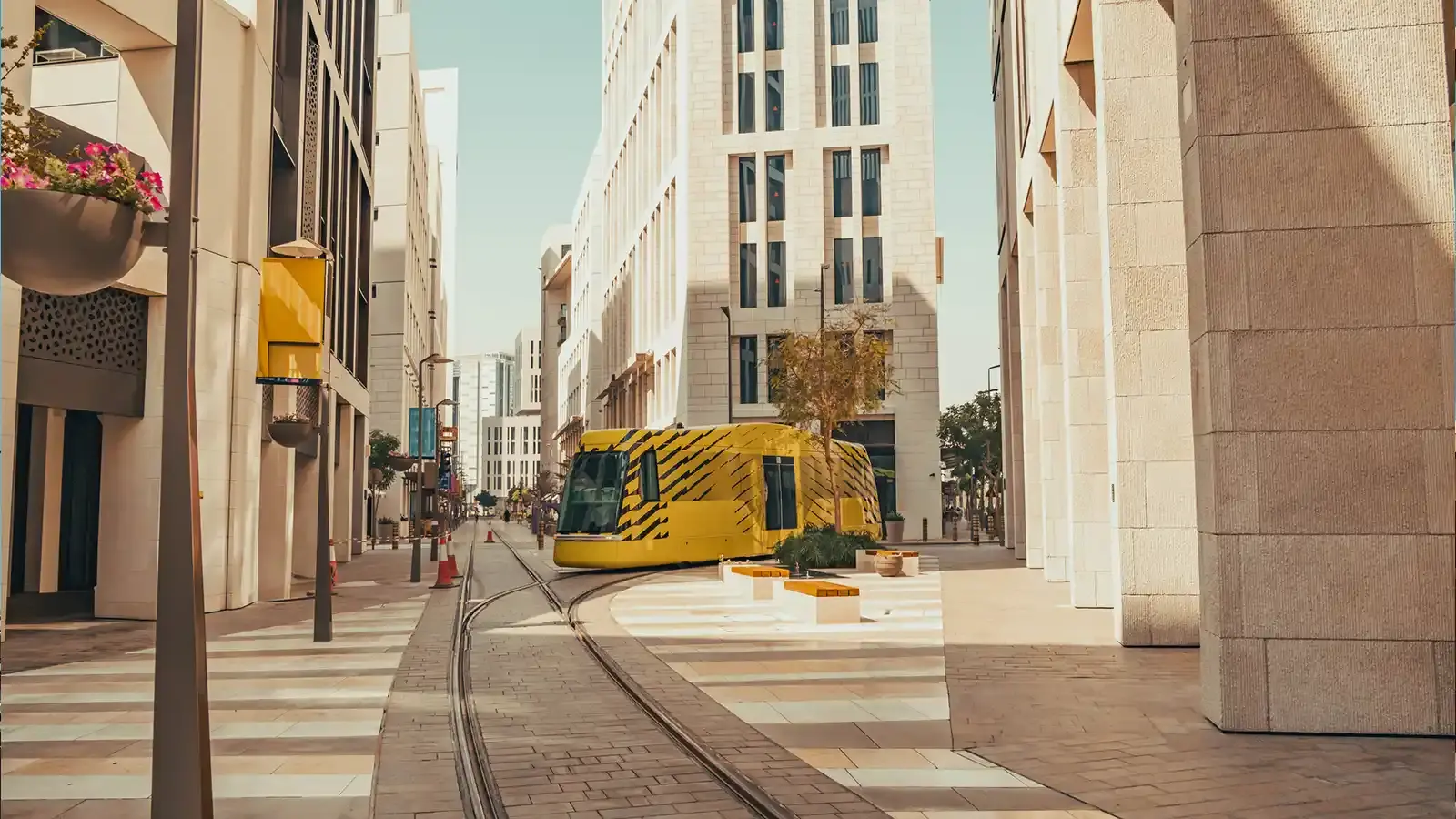Blog
Smart mobility Qatar: MENA’s transport convenience capital

Tech Trends is our bespoke series of editorial pieces offering previews of the transformative technologies that will be the talk of the show at MWC25 Doha. This article zooms in from a MENA overview to Qatar’s industry-recognised, end-to-end smart mobility network.

Find out more about our focused Smart Mobility Summit.
The MENA region has traditionally favoured car ownership, particularly in higher GDP countries. Now, a young population, booming tourism and the shift towards digitalisation and energy diversification are driving the rise of smart transportation, investment in advanced mobility programmes and global partnerships.
The MEA region is projected to be the world’s fastest-growing market for autonomous driving systems, with a CAGR of 7.8% from 2023 to 2028.
National developments are embedding mobility-as-a-service, intelligent roads, greener mass transit and self-driving programmes, all supported by real-time traffic data, HD mapping and integrated payment platforms. The resulting diverse supply chains and smart logistics can keep trade flowing and tourism cross-pollinating, even during global pinch points. However, regional challenges include affordability, accessibility, fully representative uptake and first/last mile access.
7 MENA cities (including Doha) were in the World’s Top 50 Smart Cities in 2025.
The many initiatives underway represent a shared approach. Regional aspirations are united in infrastructure modernisation, alternative fuel research and collaborative policies. Across MENA, strategic state planning and data economy advances are making concurrent gains to multiply commercial opportunities and define a more connected region.
The smart mobility market in MEA is projected to grow at a CAGR of 10.3% and could pass the $5b mark by 2033.
Qatar’s smart public transport – accessible by design
Creating the public transport systems of the future needs three things: the latest technology, buy-in from a willing public and widespread accessibility. Qatar distinguishes itself in the latter with 91.7% national coverage, making Qatar the current leader in the MENA region for access convenience to public transport. It’s worth noting that, like all GCC nations, a high percentage of Qatar’s population live in in urban environments. This makes public transport and emissions-conscious development an essential part of life for the 50 million or so city dwellers in the Arabian Gulf.
Blessed with flat terrain, Qatar is perfectly situated for an interlinked train and tram network and its strength lies in fully operational integrated services with excellent first- and last-mile accessibility.
Doha’s award-winning smart airport
If you travel to Doha on Qatar Airways (World’s Best Airline 2017-2025, Skytrax), you may experience Converix, the AI-powered in-flight entertainment system powered by Panasonic Avionics. Qatar Airways has recently teamed up with Accenture to develop a first-of-its-kind AI Skyways to further improve passenger experience with a wealth of use cases. The cargo division of the airline also optimises operations using the FLYR AI platform.
Stepping off the plane, the Doha smart mobility experience continues at the World’s Best Airport (Skytrax 2024) Hamad International Airport. Trials in automated luggage carts and driverless buses developed at Qatar Science & Technology Park are underway. In the airport’s control rooms, an award-winning digital twin and data assembled by an AI ‘performance cockpit’ allow proactive management of complex ground and air operations. The result is shorter queues, easier transfers and a more enjoyable journey, especially when combined with Hayya’s e-visa service.
Electric limousines can be found at airport arrivals for the onward journey. In line with Qatar National Vision 2030, Mowasalat Doha aims to transition all public vehicles to electric power by 2030.
Qatar’s tourism figures grew by 25% in 2024 as it welcomed over 5m visitors.
Doha Metro: record-breaking and accessible
Doha Metro links the airport to the city in just 20 minutes. An extensive 76km of routes spread out across the city north to south with one eastern and two western branches, connecting major landmarks. All 37 stations are barrier free and fully accessible and will be joined by around 60 additional stations in planning.

The metro’s intricate web of automated systems control everything from train operation to signalling, powered by thousands of interconnected pieces of software with advanced resilience systems.
- Doha Metro is a Guinness World Record holder for simultaneous tunnelling and winner of the Major Project of the Year award (ITA).
- With a top speed of 100kph, it’s one of the fastest driverless systems in the world.
- Winner of the UK’s CIHT Decarbonisation Award for its regenerative propulsion technology.
- Highest number of metro kilometres per million inhabitants globally.
All these accolades amount to one thing: faster, more reliable journeys for commuters.
Qatar is one of the most efficient countries in the world for purchasing power parity. Despite all the advanced technology, the service is affordably priced at just £1.20 for a ride-all-day ticket. The Karwa smart card and app can be used across the city’s entire public transportation network, including taxis, trains, buses and trams.
There are 16 active metro development projects currently underway in MENA, from Casablanca to Muscat.
This year, MWC Doha 2025 brings the global network and respected voices of the GSMA – the member organisation for the world’s connectivity industry – to MENA for the first time in Doha.
Meet industry counterparts and leading experts in smart mobility verticals across 11 summits including IoT, IIoT, intelligent data centres, 5G futures and agentic AI. Exchange insights in your field, whether it’s AI-powered traffic flow systems that expedite logistics operations, or integrated IoT platforms that personalise tourist experiences.
Find out more about our dedicated Smart Mobility Summit at MWC Doha.
Lusail’s e-trams driving Qatar’s IoT city vision
The Lusail tram system operates on ground-level electricity supplied by a low-emission system and is equipped with energy-efficient lighting, advanced electric braking and low-energy infrastructure. The carriages are 98% recyclable. Trams integrate with Doha Metro for citywide multimodal connectivity.
Lusail is also the site of the world’s largest electric bus depot (another Guinness World record), supporting over 800 e-buses and powered by 11,000 solar panels generating 4 MW daily.
Doha ranks third in the world for number of public buses per million inhabitants.
Hydrogen trams connect Doha’s green city spaces
A second light rail system – the free Msheireb tram – operates on a closed loop circuit and runs self-powered hydrogen-powered vehicles with no tracks or overhead lines. Msheireb Downtown was developed to reverse the trend of energy-hungry city districts and offers a quantifiable proof of concept for sustainable living, thanks to a 30% reduction in power consumption and over 650,000 IoT devices.

Host of the Innovation in Design award for sustainable city projects, Msheireb holds its own Guinness World Record for the largest underground car park.
Around 80% of MENA’s tramways have been built in the last 10 years.
Driverless taxis join Doha’s smart transport network
A walk along Doha’s picturesque corniche waterfront is a popular pastime but in summer visitors may be tempted to hail a taxi. As part of Qatar’s Autonomous Vehicle Strategy 2025-2030, electric driverless cabs are now conducting route mapping in a two-phase trial. Robotaxis will soon be available for booking in the second phase of trials, which have built on the success of autonomous e-bus programmes.
Vehicles use an array of advanced sensors, high-definition cameras, laser and ultrasonic radars to adapt routes to weather and traffic conditions using data prediction software. TASMU-powered IoT sensor technology – used to monitor traffic and crowds during the World Cup – is now being further developed to assist real-time decisions in automated bus fleets and intelligent signage.
Qatar is among the top 10 global markets in electric vehicle readiness.
High-tech shipping forecast for Qatar
Rail, tram and bus routes form the mainstay of Qatar’s public transport system, but air and maritime services are also an integral part of the end-to-end connected network.
In 2021, Hamad Port became the first 5G-enabled seaport in the Middle East, following in the footsteps of operational debuts in China and the UK. Development of Qatar’s maritime industry has closely tracked National Vision 2030, with investment in ecotech and intelligent infrastructure creating a pivotal regional hub.
Qatar Free Zones Authority has put the Fourth Industrial Revolution at the heart of its operations, building clusters for emerging technologies and incorporating transformative digital capabilities. As part of Qatar’s wider smart mobility network, advanced dockside logistics and tech-boosted free zones connect seamlessly with land transport corridors.
Meanwhile, 30 minutes away in Doha central, sustainable seaway transport is edging its way into the mass transit network. A fleet of solar powered dhows was launched in 2021, showcasing Qatar’s maritime innovation. Self-drive eco-boats are also available for hire at West Bay Beach.
Qatar's infrastructure industry is projected to grow at 12% CAGR over the next decade.
Doha’s 5G air taxi and drone delivery test flights
A sophisticated, 5G-enabled network makes Qatar the perfect testing ground for urban air mobility (UAM) as part of a multi-layered transport system. In 2018, Ooredoo, the leading Qatari telecommunications company, showcased the world's first self-driving, 5G-connected aerial taxi at The Pearl in Doha. The two-seater craft can fly for around 20 minutes at up to 130kmh and passengers can log on to personal high-speed 5G as they go.
Refinement of heli-taxi services and e-delivery planes continues into 2025 across the Gulf, with UAM expected to strengthen tourism links and take logistics to the next level.
Event use of UAM is advancing too: Qatar and the International Testing Agency gained a sporting first by trialling the use of sustainable air hoppers to deliver FIFA World Cup doping tests securely with fewer custodial handovers.
Qatar’s smart mobility policy and innovation
Founded by Qatar University in 2009, when IoT was still in its infancy, the Qatar Mobility Innovations Center (QMIC) was the first independent innovations centre in the region focusing on R&D for intelligent mobility and smart city technologies.
Invest Qatar is also highly active in the research space. Its recent report in partnership with Iberdrola notes that Intelligent Transport Systems (ITS) have the potential to reduce energy use by 25% through decreased travel time, a shift from less energy-efficient transport and a reduction in per-km energy consumption.
In conjunction with multinational infrastructure giant, Egis, a new Qatar Public Transport Master Plan (QPTMP) for 2025 onwards will build on existing smart mobility networks to expand and fine-tune sustainable, affordable, accessible transport for all.
All told, these initiatives show Qatar has furnished its people and businesses with a holistic transport solution to meet the needs of today's increasingly digital society, with space to flex in years to come.